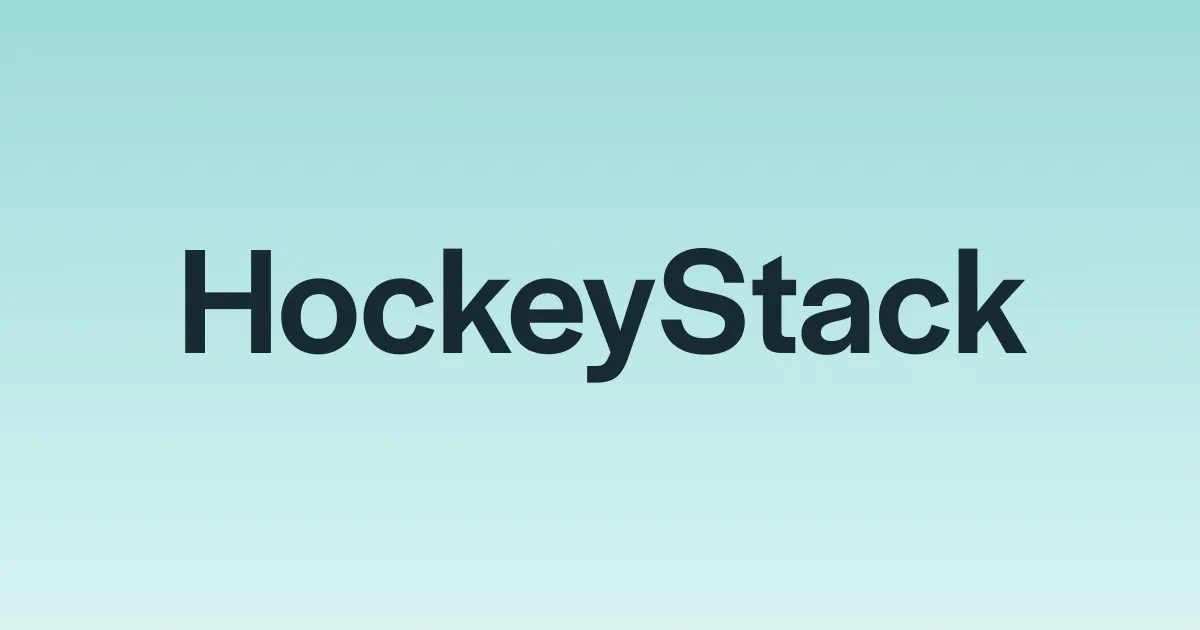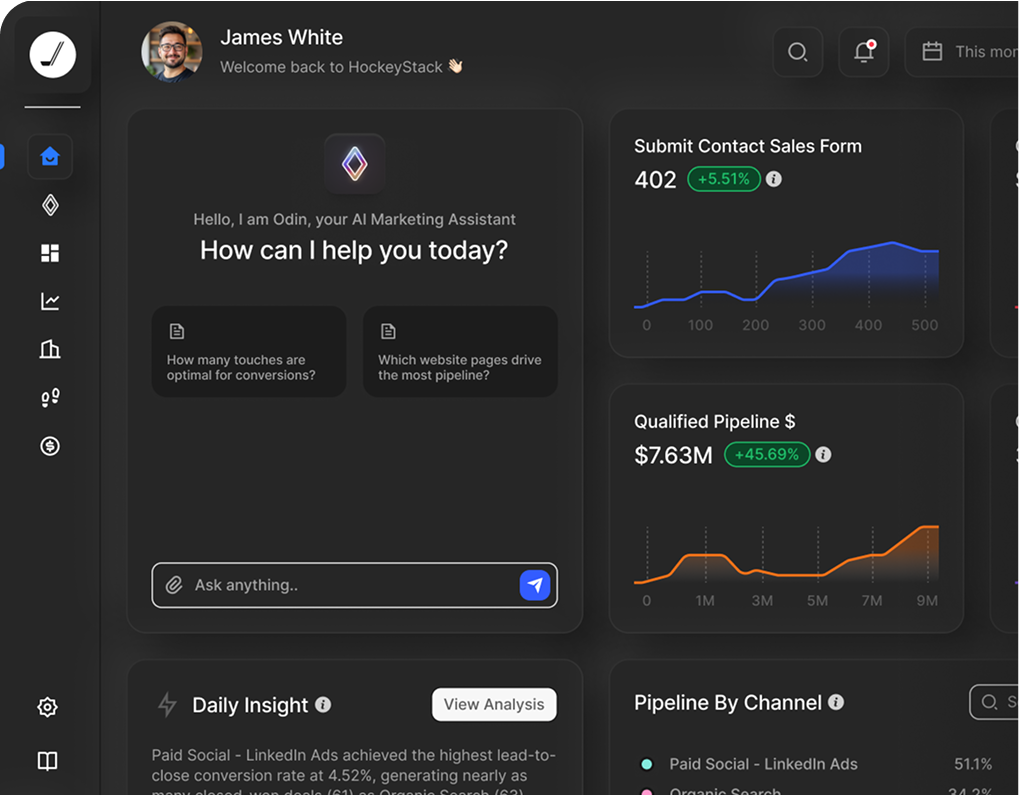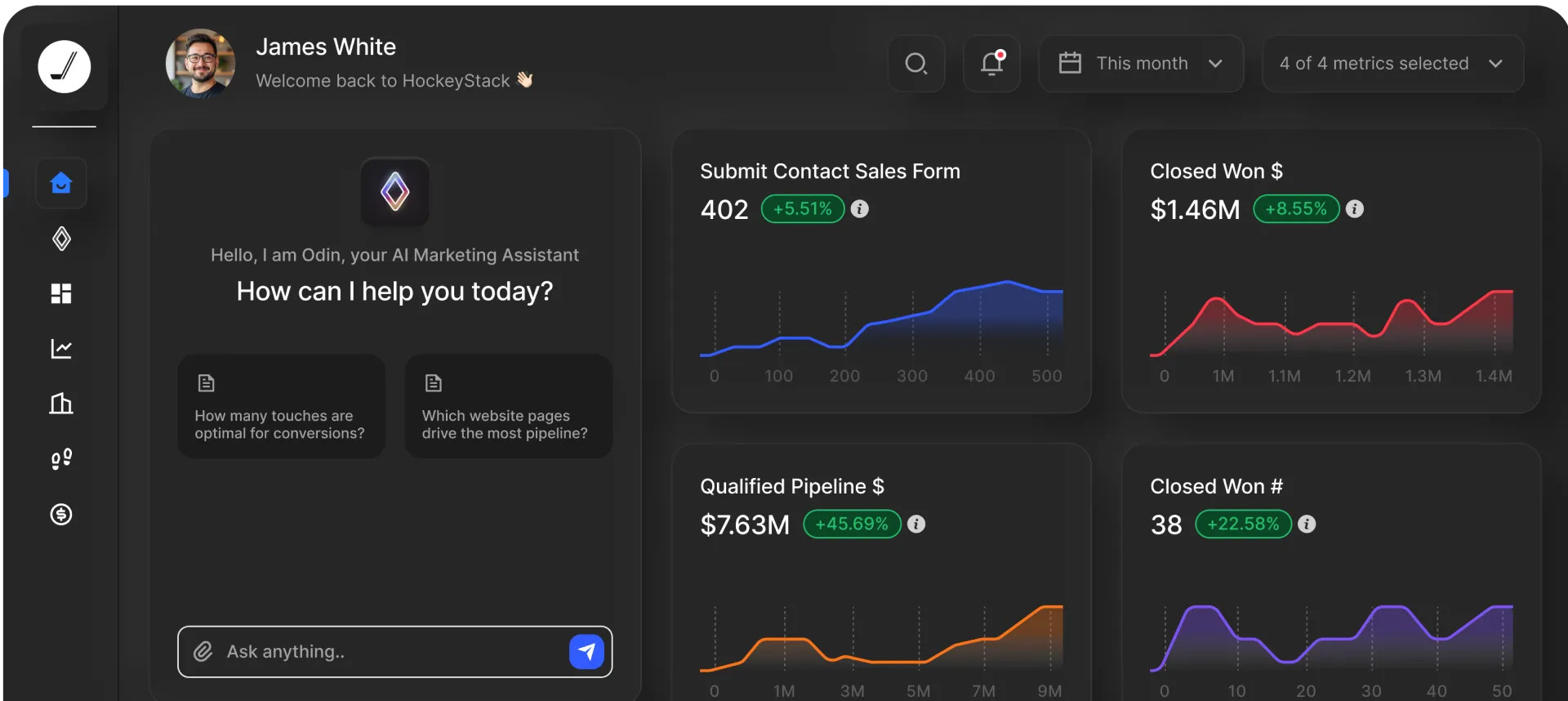5 Best 6sense Alternatives for B2B Revenue Teams in 2025

5 Best 6sense Alternatives for B2B Revenue Teams in 2025

6sense is an account-based marketing platform that combines intent data, predictive analytics, and advertising orchestration to help B2B teams identify and engage in-market accounts.
However, implementations frequently extend 4-12 weeks or longer with contracts exceeding $100,000 annually, and the platform’s object-based data models fragment buyer journey insights across disconnected systems.
For marketing and sales teams seeking complete buyer intelligence with faster deployment, this blog post examines five 6sense alternatives based on technical architecture, AI capabilities, implementation speed, and total cost of ownership.
Why Marketing and Sales Teams Are Moving Beyond 6sense
6sense's limitations become clear when you look at three key areas: cost and implementation complexity, technical architecture, and AI capabilities.
Implementing 6sense frequently takes 4-12 weeks, with contracts exceeding $100,000 annually. And after months of setup, you end up with more prep work. The platform splits buyer journey data across disconnected systems, requiring weeks of technical mapping before you get any useful insights. Even after implementation, you're left with static dashboards that require manual interpretation.
6sense also depends on third-party cookies for visitor tracking, a dependency that becomes more problematic as cookieless tracking regulations expand. And unlike platforms with agentic AI, 6sense requires analysts to manually build reports and interpret data rather than deploying AI agents that answer strategic questions instantly.
Organizations today need platforms that unify buyer journey data from anonymous impressions through closed revenue, deploy AI agents that eliminate manual analysis, and go live in weeks rather than months.
The following comparison evaluates alternatives across these criteria, with specific attention to technical architecture, AI capabilities, and real-world implementation timelines.
How We Evaluated 6sense Alternatives
The evaluation prioritized criteria that separate platforms delivering immediate ROI from those requiring months of professional services:
- Feature completeness: Whether platforms deliver complete buyer journey tracking and account intelligence, or partial solutions that need additional tools to fill gaps
- Technical architecture: Data models matter. Action-based models unify buyer journeys across all touchpoints, while object-based systems fragment data and extend implementation timelines through complex mapping requirements.
- Implementation speed: Deployment timelines determine whether platforms solve problems this quarter or get delayed until next fiscal year.
- AI capabilities: Agentic AI can save RevOps and sales teams hours of work every week on repetitive, manual tasks
- Total cost transparency: You need clear pricing including licensing, servicing, and scaling costs to make accurate ROI calculations
Comparing 6sense Alternatives: Technical Specifications, Pricing, And More
The difference between platforms comes down to both the feature sets and how easy they are to get going. Here's how the five alternatives compare:
Let’s look at some common use cases and what platform is best for each.
Best for Enterprise and Midmarket: HockeyStack GTM AI Platform
HockeyStack runs on an action-based data architecture and agentic AI that delivers complete buyer journey intelligence in 3 weeks, with full platform deployment in 6.
The platform handles the complexity of enterprise sales cycles (things like multiple stakeholders, hundreds of touchpoints, extended evaluation periods) while remaining accessible enough for midmarket teams without dedicated data engineering resources. Where point solutions like Bombora or Clearbit require additional tools to build complete buyer intelligence, HockeyStack ties together attribution, account intelligence, and AI analysis in a single platform.
The platform uses tiered pricing based on monthly tracked activity volume, so you'll be avoiding the 6-figure flat contracts that create contention when you're trying to get budget approval.
Here’s exactly how HockeyStack does what it does and why it’s loved by B2B marketing teams of all sizes:
Data and Attribution Models
HockeyStack's action-based data model ingests every touchpoint as timestamped events and automatically stitches everything into complete buyer journeys. This eliminates the object mapping processes that extend other implementations for months.
For visitors without cookies or IP addresses, cookieless fingerprinting provides visitor-level intelligence that can’t be matched by competitors replying on account-level IP tracking.
Agentic AI
The Odin AI agent acts as your personal marketing analyst. It can answer strategic questions like "We have $10K remaining in our budget this quarter, what should we focus on?" with recommendations backed by attribution data.
Nova, the AI assistant for sales, provides sales teams with automated account research and stakeholder mapping. For example, the sales teams at n8n save approximately 5 hours per rep per week on meeting preparation.
Lift Analysis
HockeyStack's lift analysis runs controlled experiments comparing campaign results against doing nothing, measuring true incremental impact rather than correlation.
Real Customer Results
The impact shows up quickly across different revenue functions. Firstup consolidated $140,000 annually in fragmented tools including 6sense into HockeyStack's unified platform. The switch gave them full-funnel attribution and account intelligence that actually aligned sales and marketing around the same metrics, eliminating the fragmented data that had teams working from different sources of truth.
Additional 6sense Alternatives for Specific Use Cases
If you’re looking to replace 6sense with a solution for a specific use case, you can also consider the following:
ZoomInfo MarketingOS: When Contact Data Quality Drives Priority
ZoomInfo MarketingOS runs on the same continuously refreshed contact database that powers sales intelligence, solving the data quality problems that break lead routing. However, its predictive scoring and simple attribution limit its capabilities compared to dedicated GTM platforms.
Demandbase: ABM with Website Personalization
Demandbase combines account identification, advertising, and website personalization in a mature ABM platform. The platform is known for personalized web experiences for target accounts. However, the object-based data model fragments buyer journey insights, and the platform lacks the agentic AI capabilities that eliminate manual analysis work.
Bombora: Pure Intent Data for Existing Workflows
Bombora delivers topic-level intent signals that plug directly into existing CRM workflows without professional services implementation. SDR leaders can use Bombora to map topics to ICPs, set thresholds, and push accounts to outreach sequences within days. The platform lacks attribution tracking, lead scoring, or campaign orchestration beyond intent signal strength.
Clearbit: Event-Level Enrichment for Form Conversions
Clearbit matches anonymous visitors and form submissions with company data through IP mapping, then pushes enriched records to your CRM in real time. The fast implementation means you can skip multi-week object mapping efforts and go straight to event-based data modelling. But their spotty match rate may limit coverage of small businesses, and this limits their attribution tracking and buyer journey mapping.
Choose HockeyStack for Complete Buyer Journey Intelligence
Marketing teams prioritizing contact data depth over attribution sophistication benefit from ZoomInfo MarketingOS. Teams needing only intent signals without full platforms should evaluate Bombora's data subscription model.
But for marketing leaders seeing the majority of deals attributed to "direct traffic" and sales teams wasting hours on account research, the right solution should be a platform that unifies buyer journey data and deploys AI that answers strategic questions instantly.
HockeyStack's action-based data architecture and agentic AI capabilities deliver just that, plus you can go live in 3-4 weeks with tiered pricing based on tracked users and activity volume.
Book a demo with HockeyStack to see how complete buyer journey tracking, agentic AI, and rapid implementation timelines translate to consistent, scalable pipeline.
The Complete Guide to Fixing Attribution Bias in Marketing
Attribution bias is wasting your marketing budget. Learn 6 common biases, how to detect them, and how to fix skewed credit so you invest in channels that truly drive revenue.


Ready to see HockeyStack in action?
HockeyStack turns all of your online and offline GTM data into visual buyer journeys and dashboards, AI-powered recommendations, and the industry’s best-performing account and lead scoring.

Ready to See HockeyStack in Action?
HockeyStack turns all of your online and offline GTM data into visual buyer journeys and dashboards, AI-powered recommendations, and the industry’s best-performing account and lead scoring.




